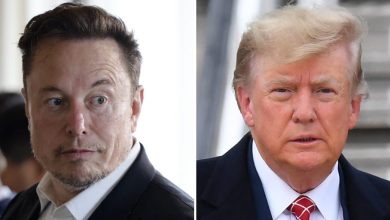Congress Has No Authority to Regulate the Supreme Court, Asserts Samuel Alito

In a recent speech, Supreme Court justice Samuel Alito made a significant assertion that Congress lacks the authority to regulate the Supreme Court. Alito’s remarks have stirred up opinions and discussions on the delicate balance between the branches of the government and the power they hold.
Speaking at a virtual event held by the conservative Federalist Society, Justice Alito tackled the issue of congressional control over the judicial branch. He asserted that while Congress may have oversight powers, it cannot regulate or dictate the Supreme Court’s decisions or procedures.
Alito’s statement reinforces the principle of separation of powers, a fundamental concept embedded in the United States Constitution. The separation of powers ensures that no single branch of government becomes dominant, creating a system of checks and balances. It prevents an abuse of power by giving each branch specific roles and responsibilities, thereby safeguarding democratic principles.
The constitution grants Congress the power to establish and organize the Supreme Court, as well as the authority to determine the number of justices and their salary. However, Alito argues that beyond these powers, Congress cannot impose regulations or restrictions that infringe on the autonomy and decision-making process of the Supreme Court.
As expected, Alito’s commentary has sparked differing reactions across the political spectrum. Critics argue that without any regulations, the Supreme Court members could potentially become immune to accountability and engage in unchecked judicial activism. They suggest that some measure of regulation could ensure that the Court remains accountable to the people and their elected representatives.
Proponents of Alito’s perspective argue that preserving the independence of the judicial branch is crucial to maintaining the balance of power. They contend that the Supreme Court needs to be free from political interference to render objective, fair, and impartial judgments. They argue that the Court should not be influenced by partisan interests or majority rule, as it could jeopardize the protection of individual rights guaranteed by the Constitution.
Supreme Court justices, once appointed, serve for life, ensuring that they are insulated from political pressure or popular whims. This lifetime tenure, alongside the Court’s interpretive power, grants justices the authority to interpret the Constitution and make decisions that they believe align with its original principles.
However, while Alito’s assertion aligns with long-standing interpretations of the separation of powers, it is essential to recognize that the power dynamics between the three branches of government need not stagnate. The Supreme Court’s independence shouldn’t shield it from constructive criticism or meaningful discussions on its role in society. Such debates play a vital part in ensuring that the Court remains connected to the evolving needs of the nation.
Ultimately, Alito’s statement serves as a reminder of the delicate balance that exists within the U.S. government system. While Congress has oversight powers over the Supreme Court, it is essential to recognize that there are limits to its control. The separation of powers is a fundamental pillar in safeguarding democracy, and these boundaries play a crucial role in preserving the integrity of each branch.
As the debate continues, it is crucial to strike a balance that upholds the principle of judicial independence while maintaining checks and balances within the system. It is through such careful consideration that the United States can continue to cultivate a robust democracy that combines an independent judiciary with an accountable government.




